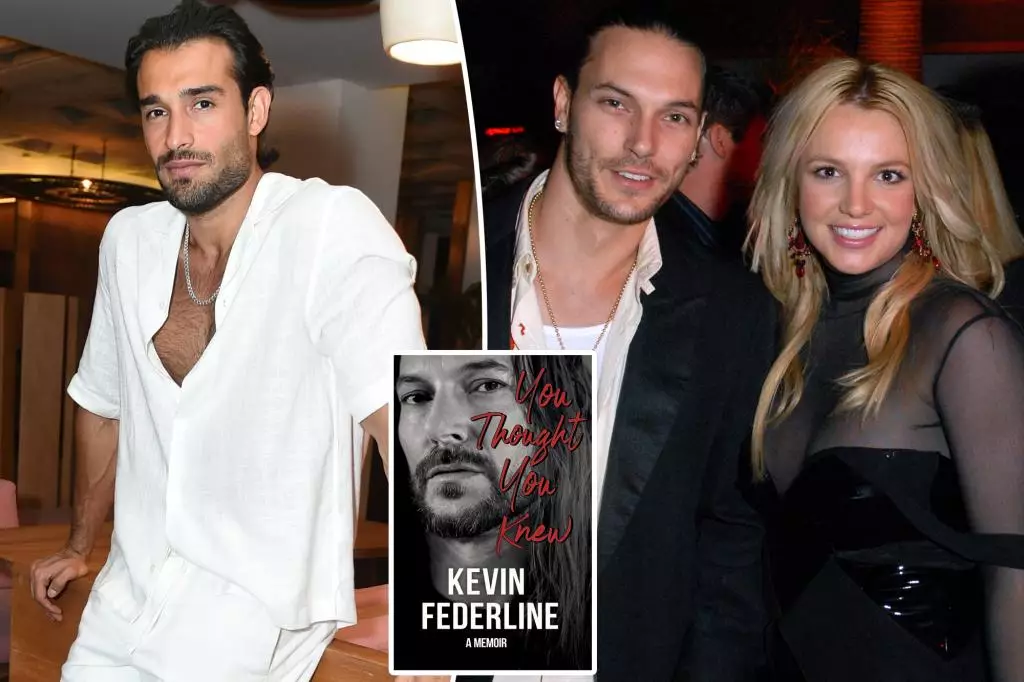In the tumultuous world of celebrity relationships, public figures often become pawns in a larger spectacle of personal storytelling. Britney Spears and Kevin Federline’s saga is a prime example of how private lives are weaponized for public consumption, with Federline stepping into the spotlight once more through his forthcoming memoir. His decision to reveal intimate details of their marriage not only fuels the media frenzy but also exemplifies how former partners leverage their experiences for personal gain and influence. This dynamic raises critical questions about authenticity, manipulation, and the true intent behind such revelations.
Federline’s upcoming book, titled “You Thought You Knew,” claims to offer honesty and depth into their high-profile marriage. Yet, the timing and tone of the announcement suggest an underlying motive—to control the narrative and perhaps regain some relevance in a media landscape obsessed with celebrity drama. While some argue that such memoirs provide valuable insights into a star’s life, it’s undeniable that they often serve as tools of validation and revenge. For Federline, such a memoir is a double-edged sword: it can generate sympathy, but it also invites scrutiny and controversy, especially considering his past custody battles and financial arrangements.
Meanwhile, Britney Spears’ own story is intertwined with trauma and resilience, yet her voice frequently becomes overshadowed by these public disputes. Her silence for long stretches contrasts sharply with Federline’s decision to speak openly, revealing the power imbalance inherent in their relationship. It’s a stark reminder that, in celebrity narratives, the person who speaks last often holds the most power—be it to defend, distort, or redefine their story.
The Complexity of Family and Personal Identity in the Public Eye
The saga extends beyond Britney and Federline, touching on themes of fatherhood, responsibility, and the fractured nature of modern family life. Federline’s portrayal of himself as a “professional father” suggests an attempt to redefine his role beyond convenience and tabloids—perhaps as a man who has navigated the difficult terrain of divorce and custody with a specific narrative in mind. Conversely, Spears’ own struggles with mental health, autonomy, and fame cast long shadows over her personal life, complicating public perceptions of who is at fault or who is hurt most.
Federline’s memoir promises a detailed account of their marriage, but it also risks further entrenching stereotypes about celebrity relationships—particularly those involving intense media scrutiny and public judgment. His choice to include details about their “highly publicized” union indicates awareness of the spectacle, yet it also raises ethical concerns about privacy, especially for their children. The indiscriminate sharing of family secrets, under the guise of transparency, can have lasting emotional repercussions, not just for the children involved but for all parties vying for control over their own narratives.
Furthermore, Federline’s initiatives to rebrand his image—marrying Victoria Prince after his split from Britney and publicly sharing his personal journey—highlight the complex layers of a man seeking validation and stability amidst chaos. However, it’s clear that his strategic disclosures may serve to salvage a sense of relevance rather than purely heal old wounds.
The Power Play of Media and Public Perception
The media’s role in shaping these stories cannot be underestimated. TMZ’s provocative coverage and Federline’s candid remarks exemplify the sensationalist tendencies that dominate celebrity journalism. Such discourse fosters an environment where personal pain becomes entertainment, and the boundaries between private grief and public spectacle blur dangerously.
The timing of these revelations—just ahead of Federline’s book release—suggests a calculated move to maximize exposure and influence. It also demonstrates how celebrities and their ex-partners are often caught in a cycle of tit-for-tat, using their stories as currency in their ongoing battle for control. The more they reveal, the more they risk dehumanizing themselves and their loved ones, but the less they are seen as passive victims and more as strategic players in a relentless game of public perception.
Spears’ saga, with its peaks of fame, mental health struggles, and personal loss, reveals a broader commentary on how society consumes celebrity distress. Federline’s remarks add layers of complexity—are they sincere reflections, or calculated attempts to reshape his legacy? In either case, these narratives remind us that behind the glitz and glamour lies a brutal, unending power struggle over the story of their lives.
This relentless quest for control and validation underscores a harsh reality: in the sphere of fame, personal stories aren’t just reflections of truth—they are weapons used to craft destiny. Whether Spears or Federline, both are ultimately survivors—and at the core of their stories lies the enduring human need for agency, respect, and meaning amid the chaos of fame.

